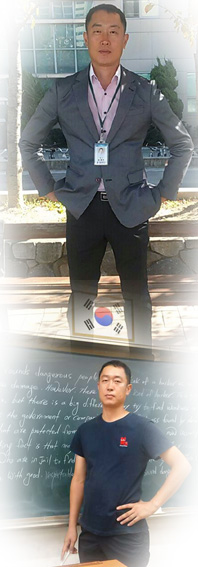2012년 수능 외국어 영역 35번 해설 - 송곡닷컴(songgok.com)
35. 다음 글의 주제로 가장 적절한 것을 고르시오
All of us use the cultural knowledge we acquire as members of our own society to organize our perception and behavior. Most of us are also naive realists: we tend to believe our culture mirrors a reality shared by everyone. But cultures are different, and other people rarely behave or interpret experience according to our cultural plan. For example, an American anthropologist attempted to tell the classic story of Hamlet to Tiv elders in West Africa. She believed that human nature is pretty much the same the whole world over; at least the general plot and motivation of the great tragedy would always be clear. But, at each turn in the story when she told it, the Tiv interpreted the events and motives in Hamlet using their own cultural knowledge. The result was a very different version of the classic play.
① cultural differences in perception and interpretation
② tragic characteristics of classic West African plays
③ the positive function of culture as a mirror of reality
④ human nature and its role in developing culture
⑤ the process of acquiring cultural knowledge
1. 내용풀이
사람들은 상이한 문화적 지식을 이용하여 현상을 인식하고 해석하게 된다는 내용의 글이므로, cultural differences in perception and interpretation(인식과 해석에 있어서의 문화적 차이)이 글의 주제로 가장 적절함.
2. 구문해설
[All of us use the cultural knowledge / (that) we acquire / as members of our own society / to organize our perception and behavior] * as:~로서 * to organize: 목적을 나타내는 부사적 용법(구성하기 위하여)
[we tend to believe (that) our culture mirrors a reality (which is) shared by everyone] *mirror:반영하다 * tend to: ~하는 경향이 있다
3. 단어정리
*acquire:획득하다, 얻다 *organize:구성하다, 조직하다 *perception:지각, 인식 *naive:순진한, 소박한 *mirror:반영하다, 반사하다, 반영, 거울 *rarely:거의~하지 않는(barely, hardly, seldom) *interpret:해석하다 *anthropologist:인류학자 *attempt:시도하다 *nature:본성 *plot:줄거리, 작은텃밭, 음모(conspiracy) *motivation:동기(부여) *the great tragedy:위대한 비극 작품 *version :변형, 판
4. 전문해석
우리는 모두 자신의 사회의 구성원으로서(as members of our own society) 우리가 획득하는(we acquire) 문화적 지식(the cultural knowledge)을 우리의 인식과 행동(our perception and behavior)을 구성하는 데 사용한다. 우리들 대부분은 또한 순진한 현실주의자들 이다. 우리는 우리의 문화가 모든 사람에 의해서 공유되는(shared by everyone) 현실을 반영한다(mirrors a reality)고 믿는 경향이 있다. 하지만 문화들은 서로 다르며, 다른 사람들이 우리의 문화적 모형에 맞추어서(according to our cultural plan) 행동하거나 경험을 해석하는 일은 거의 없다(rarely). 예를 들어, 미국의 한 인류학자가 <햄릿>이라는 고전적 이야기(the classic story of Hamlet)를 서아프리카의 티브 족 노인들(Tiv elders in West Africa)에게 들려주려고 시도했다(attempted to tell). 그녀는 인간의 본성이 세계 전역에서(the whole world over) 아주 많이(pretty much) 비슷할 거라고 믿었다. 최소한(at least) 그 위대한 비극 작품(the great tragedy)의 일반적인 줄거리나 동기(the general plot and motivation)는 항상 분명할 것이라고 생각했다. 하지만 그녀가 그것을 들려주었을 때(when she told it) 이야기가 전환될 때마다(at each turn in the story), 티브족 사람들은 <햄릿>에 나오는 사건들과 모티브들(the events and motives in Hamlet)을 그들 자신의 문화적 지식을 사용하여(using their own cultural knowledge) 해석하였다. 결과적으로 그 고전적 희곡 작품(the classic play)의 매우 다른 버전이 나오게 되었다.
.gif)


.gif)

